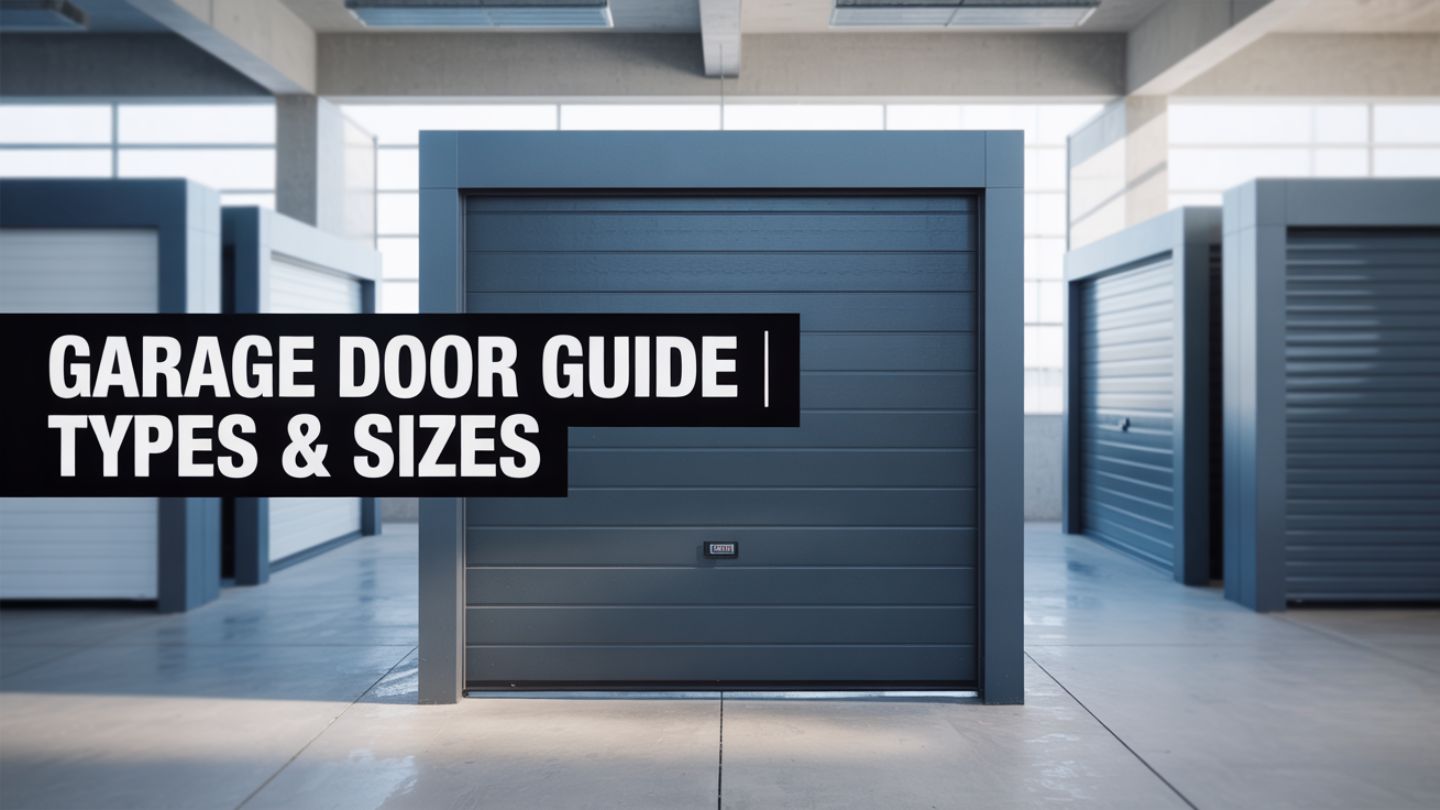
Choosing the right commercial garage door is a critical decision that directly impacts operational efficiency, safety, and security. Whether you manage a warehouse, auto dealership, retail facility, or manufacturing site, the right door solution must align with your specific business needs. From size and functionality to compliance with local codes, selecting a door isn’t just about access; it’s about performance, protection, and long-term value.
This blog breaks down the most common types of commercial garage doors, key selection factors, size considerations, and additional features that can enhance your facility’s productivity and compliance. If you're evaluating options for your business, understanding these elements will help you make a confident, cost-effective investment.
Commercial garage doors play a pivotal role in maximizing daily efficiencies and providing safe, convenient entry for various business operations. Unlike residential doors, commercial garage doors prioritize function and efficiency, making them essential for any business looking to optimize its operations. From protecting against intruders to enduring harsh weather conditions, these doors enhance security and durability for businesses.
There are several types of commercial garage doors, each designed to meet specific needs:
Knowing the various types of commercial garage doors and their applications allows businesses to select the right door for their specific requirements.
Overhead garage doors are a popular choice for many businesses due to their functionality and space-saving design. Key features and uses include:
However, it’s important to consider the overhead space available when choosing these doors, as they require sufficient room to operate properly. For businesses with limited overhead space, other options might be more suitable to accommodate larger openings in commercial space, including door opening solutions.
Overall, overhead garage doors are a versatile and reliable choice for various business applications, providing both accessibility and space management benefits with a commercial overhead door.
Roll-up garage doors are designed to save space by coiling compactly above the door frame, requiring significantly less backroom space compared to other types. Constructed from durable materials like steel or aluminum, these coiling doors are built to withstand high traffic and frequent use, making them ideal for busy commercial environments. A roll-up door is an excellent choice for maximizing efficiency in such settings and can also include roll-up options for added versatility.
These doors are especially suited for high-traffic areas due to their efficient operation and compact design, which allows for maximum use of available space. From insulated to high-speed options, exploring the different types of commercial roll-up doors helps businesses choose the ideal solution for performance and durability.
Sectional garage doors consist of horizontal panels connected by hinges that open in an arched path, offering flexibility in operation. These sectional doors can be operated manually or automatically, ensuring they meet the diverse needs of various businesses. However, they require ample overhead space and a clear path for opening and closing to function properly.
Commonly used in high-traffic distribution centers and loading docks, sectional garage doors are known for their efficiency and durability. They can be customized with insulation, windows, and see-through panels, making them a versatile choice for businesses looking to enhance both functionality and aesthetics.
If you notice irregular movement or excessive noise, these may be signs that your commercial sectional door needs to be replaced to maintain security and efficiency.
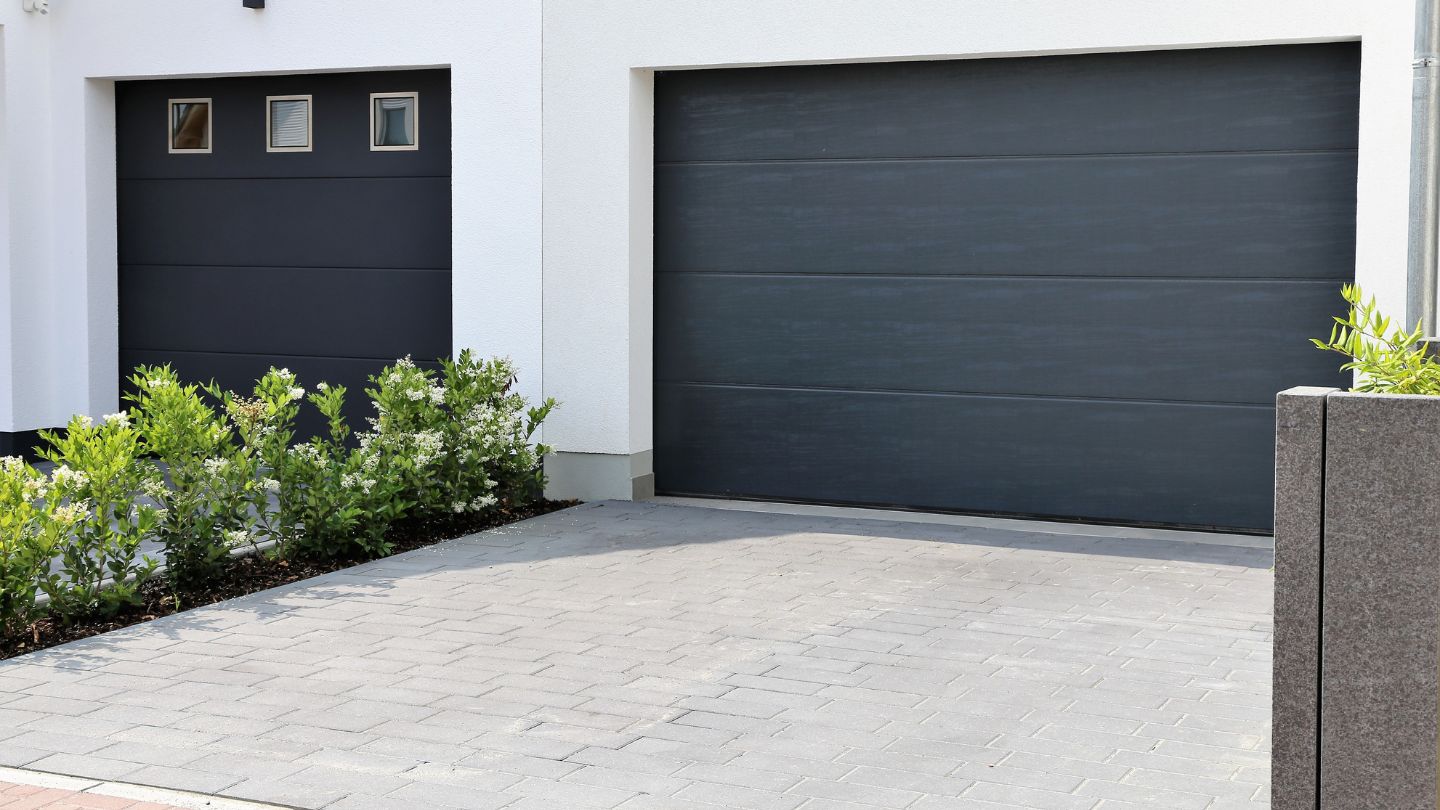
Specialized commercial garage doors are designed to meet unique business requirements, offering tailored solutions for various industries. From fire-rated doors that ensure safety compliance to insulated doors that enhance energy efficiency, these specialized options cater to specific needs. Selecting the right type of door involves considering factors like natural lighting, energy efficiency, and specific business applications.
These doors serve specific applications, such as enhancing security or providing interior divisions within commercial spaces. Understanding the different types of specialized commercial garage doors can help businesses choose the best option to meet their unique needs.
Fire-rated garage doors are designed to provide safety compliance in high-risk environments, making them an essential choice for businesses that need to adhere to strict fire safety regulations. Constructed to resist flames and smoke, these fire doors offer an added layer of protection, helping to ensure the safety of both employees and assets.
Choosing fire-rated doors significantly enhances fire protection measures, ensures compliance with local regulations, and provides peace of mind in high-risk environments.
Insulated garage doors offer significant advantages for energy efficiency and climate control, making them ideal for both residential and commercial applications. By maintaining stable internal temperatures, an insulated garage door can significantly reduce heating and cooling costs, providing long-term savings.
In addition to energy efficiency, insulated doors also provide comfort and better temperature control over the working environment, making them suitable for businesses operating in extreme temperatures or harsh weather conditions while helping to manage energy costs and maintain an optimal internal temperature. Additionally, they offer weather protection against the elements.
Security grilles are designed to offer visibility while protecting access points in retail establishments and commercial spaces, making them a practical choice for businesses. These grilles provide a balance between security and accessibility, ensuring that business premises are safeguarded without compromising on visibility.
Evaluating security measures and selecting the appropriate security grille helps businesses protect their assets effectively while maintaining a welcoming environment for customers.
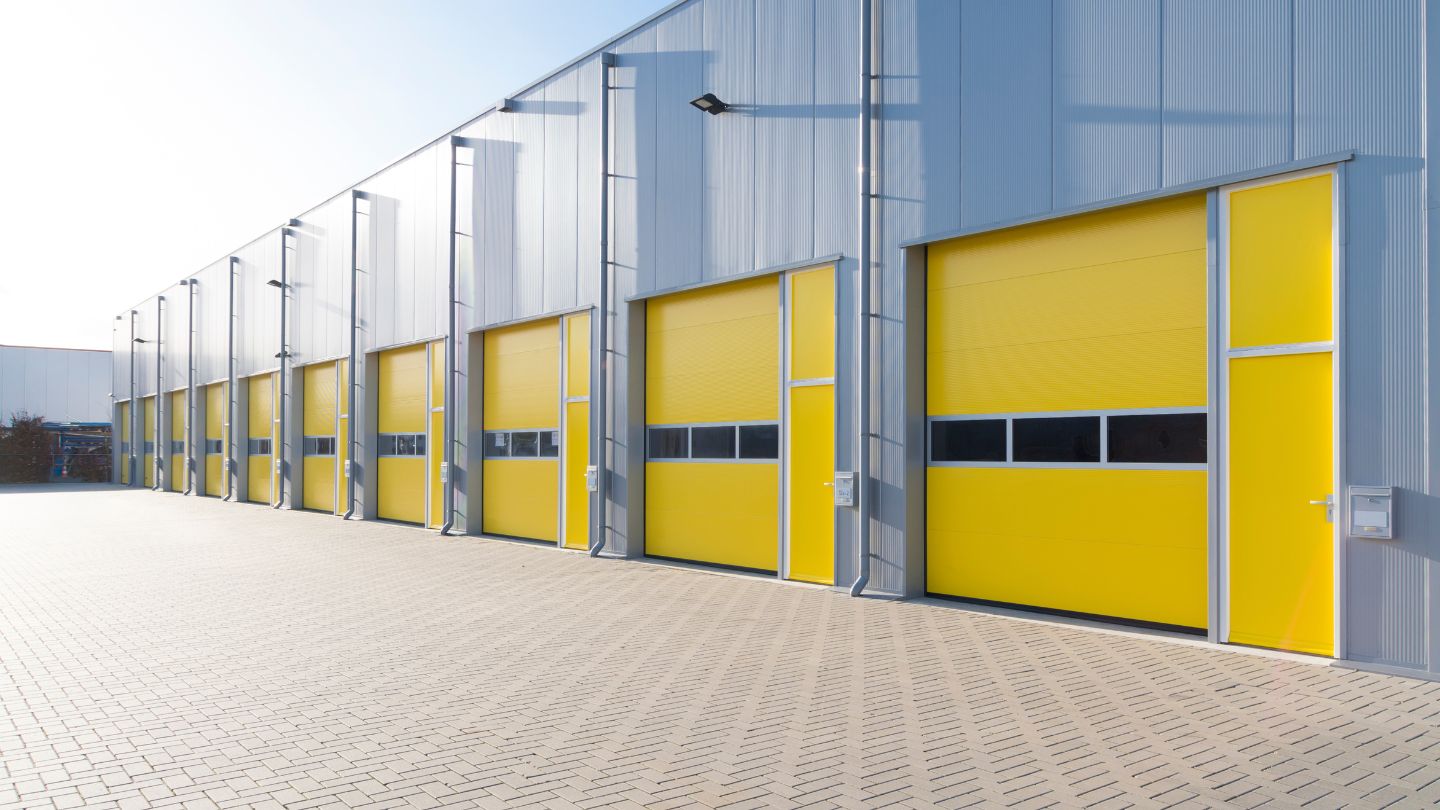
Selecting the right commercial garage door requires careful consideration of various factors tailored to specific business needs. Business owners should evaluate the style, size, and functionality of the garage door to ensure it fits their operations. New business owners, in particular, might be unaware of the different types and options available, highlighting the importance of understanding commercial garage door sizes and their applications.
Common industries using commercial garage doors include warehouses, manufacturing plants, and car dealerships, where these doors play a vital role in daily operations within industrial facilities. If you're facing operational issues or safety concerns, investing in a commercial garage door repair service ensures safe operation, reduces downtime, and extends the lifespan of your doors, making it a cost-effective business decision.
When selecting a commercial garage door, consider factors like:
Understanding these elements helps businesses choose a door tailored to their specific needs and operations, considering a few factors.
If unsure about the type or size of a commercial garage door needed, consulting a guide from a commercial garage door professional or a garage door specialist provides valuable guidance. Professionals offer tailored advice based on specific business needs, ensuring the right garage door and opener for your space.
Adhering to local building codes is crucial when selecting a commercial garage door, as different municipalities may have specific requirements. Employing specialists for garage door installation enhances safety and ensures compliance with local building regulations.
Following these regulations helps businesses avoid potential legal issues and ensures the safety and efficiency of their commercial garage doors.
Selecting the right material for commercial garage doors ensures both functionality and longevity. Aluminum doors, known for their lightweight properties and rust resistance, are popular among many businesses. Steel doors, offering superior strength and security, provide an added layer of protection.
Choosing between aluminum and steel affects the overall cost, maintenance requirements, and durability of the garage doors. Evaluating these options helps businesses make an informed decision that aligns with their specific needs and budget.
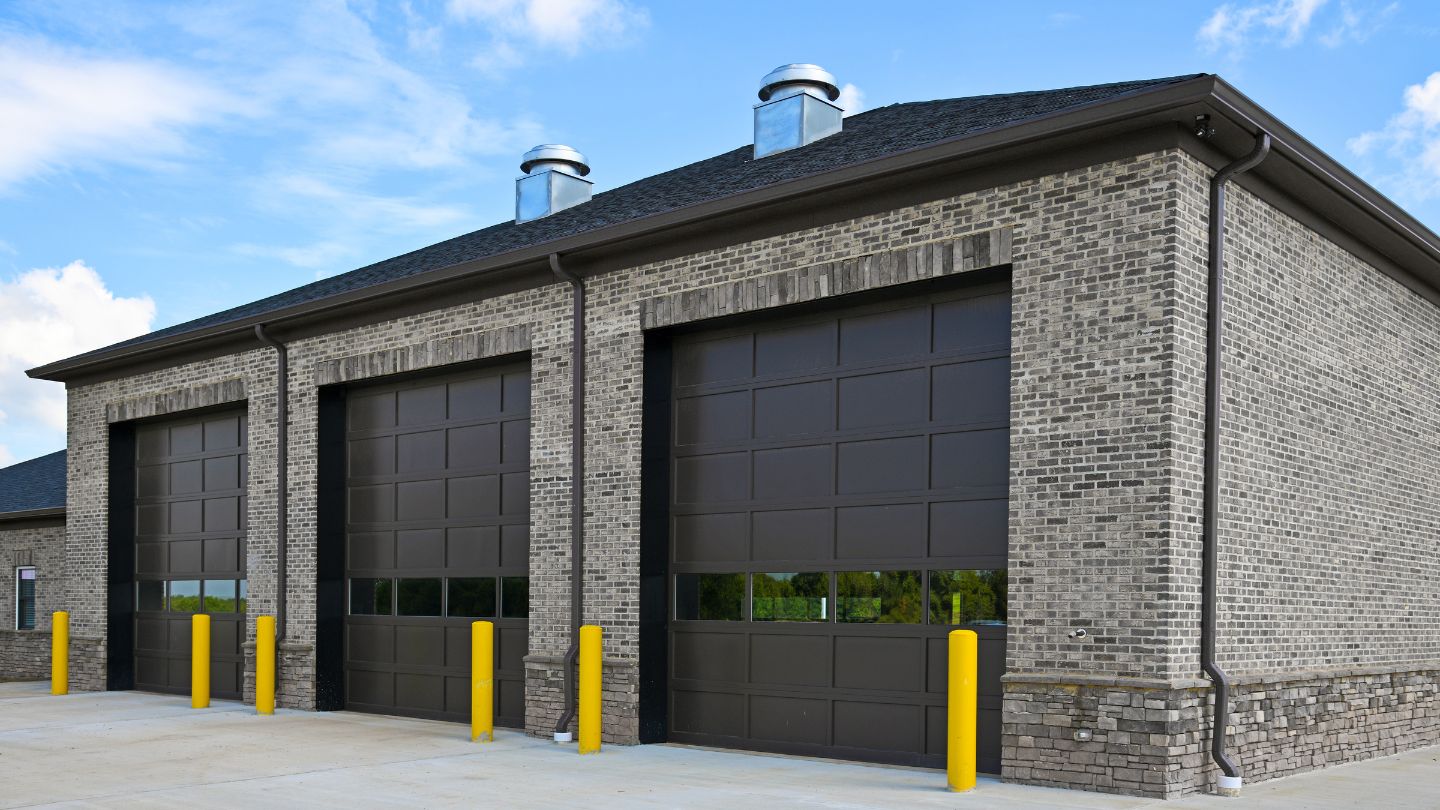
Customizing commercial garage doors meets specific business requirements and enhances overall functionality. Tailored solutions addressing unique needs like security measures and features that improve climate control significantly boost the efficiency of commercial operations.
Customizing commercial garage doors enables businesses to create doors that meet their operational needs and align with their brand and aesthetic preferences.
Accurately measuring the space for a garage door ensures ordering the correct size, which is crucial for optimal functionality. Standard sizes for roll-up garage doors are typically 30 by 30 feet and 50 by 40 feet, while sectional ribbed steel garage doors range from 20 to 26 feet wide and 16 to 24 feet tall. When considering commercial garage door sizing, it’s important to adhere to these measurements and refer to a garage door sizing guide.
Businesses that need to accommodate larger trucks or equipment may require custom-sized garage doors. Understanding commercial garage door sizes is crucial for determining how to accommodate larger trucks for the best option for your facility.
Design options for sectional ribbed steel garage doors include flush or raised panel designs, various colors, and windows, enhancing the visual appeal of business premises. Consider the aesthetics of the garage door to ensure it aligns with your business branding.
Aesthetics play a crucial role in creating a positive impression and enhancing the marketability of commercial garage doors, making it important to choose designs that reflect your brand’s image while maximizing natural light.
High-speed operation in roll-up garage doors allows for faster opening and closing cycles, making them ideal for high-traffic areas. Features like automation, insulation, and high-speed doors significantly improve the efficiency and functionality of commercial garage doors.
Incorporating these features enhances the overall performance of garage doors, ensuring they meet the structural integrity demands of specific operations.
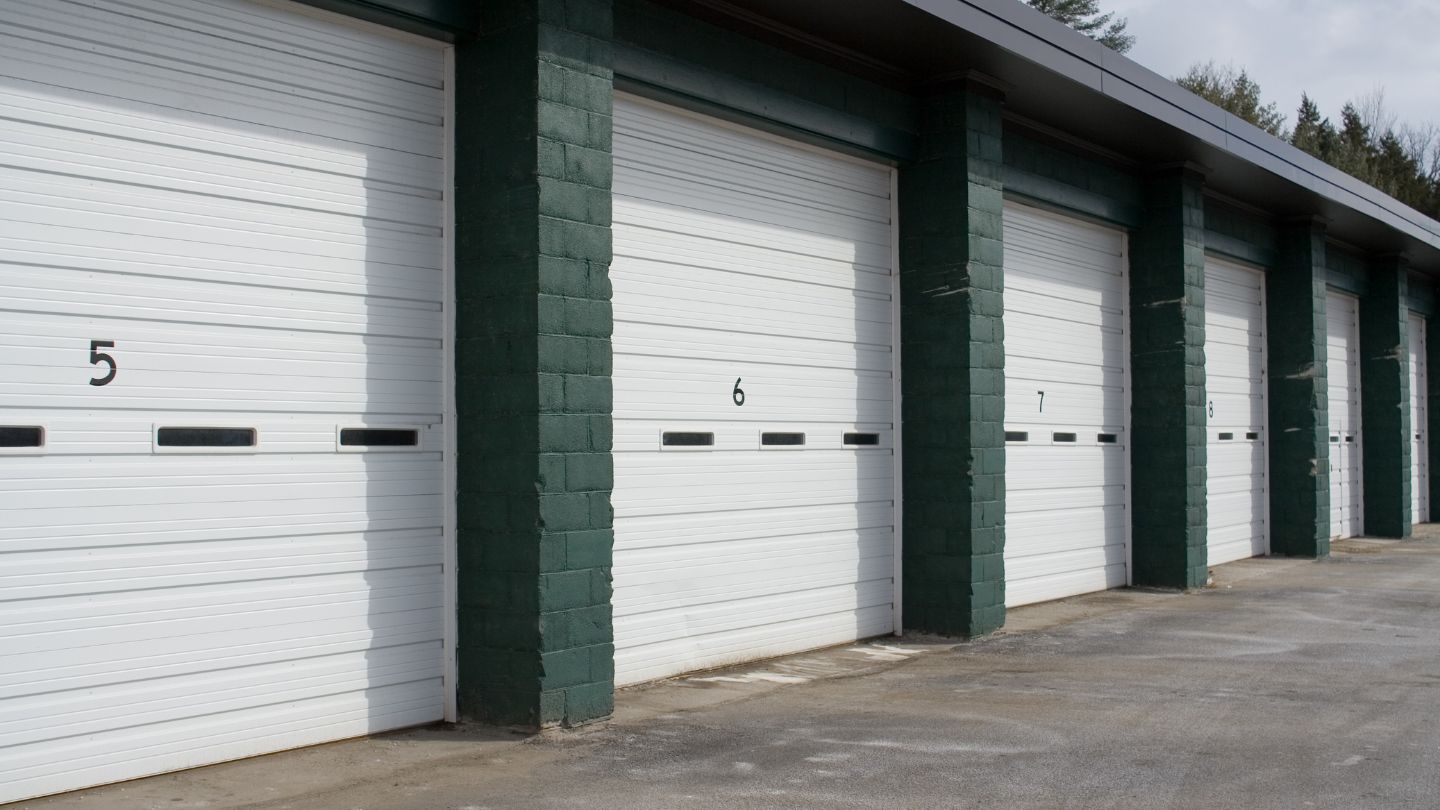
Professional installation and proactive upkeep are vital for long-term functionality. Understanding the garage door installation process, from initial measurements to safety checks, helps businesses prepare for a smooth and compliant installation.
Routine maintenance, including regular inspections and lubrication, helps identify and address issues early, preventing costly repairs and extending the lifespan of your low-maintenance doors.
Wondering how long it takes to install a garage door? Most standard installations are completed in a few hours, ensuring minimal interruption to your business.
Investing in professional installation and regular maintenance ensures commercial garage doors operate smoothly and efficiently, providing reliable and secure access for daily operations.
Engaging professionals for commercial garage door installation ensures heavy equipment is handled properly, minimizing injury risk and ensuring a safe installation process. Professional installations often include a comprehensive site assessment, allowing experts to tailor the door choice to specific business needs and operational requirements.
Choosing professional installation services ensures commercial garage doors are installed correctly and efficiently, providing a reliable and secure solution for business operations.
Regular inspections of commercial garage doors prevent major issues such as misaligned tracks and worn-out components, ensuring smooth operation and extending the lifespan of the doors. Periodically lubricating moving parts helps maintain smooth operation and prolongs the lifespan of commercial garage doors. However, nylon rollers should not be lubricated as they are self-lubricating.
Cleaning the exterior with a mixture of soap and water, checking the alignment of tracks, and maintaining weather stripping are essential maintenance tasks that keep your doors in optimal condition.
Understanding the types, features, and materials of commercial garage doors is essential for making a decision that supports long-term performance, safety, and cost-efficiency. From overhead and roll-up doors to insulated and fire-rated options, this guide has outlined how functionality, compliance, and customization play a pivotal role in choosing the right door for your business. Prioritizing expert installation and ongoing maintenance further enhances reliability and service life.
Dayton Door Sales brings over six decades of industry experience and specialized knowledge to every project, offering dependable service and premium garage doors in Dayton that businesses trust. Whether you're outfitting a new facility or upgrading existing infrastructure, we deliver tailored solutions that maximize value, safety, and operational efficiency.
Steel is widely considered the most durable material for commercial garage doors due to its strength, security, and resistance to impact. Aluminum is also popular for its lightweight and corrosion-resistant properties.
It’s recommended to have commercial garage doors professionally inspected and serviced at least once a year. High-traffic facilities may require more frequent maintenance to ensure safe and efficient operation.
Yes, many commercial garage doors can be customized with specific colors, panel designs, windows, or even company logos to align with a brand’s visual identity while maintaining functionality.
Absolutely. Insulated commercial garage doors help regulate indoor temperatures, reduce energy costs, and improve employee comfort, especially in environments with heating or cooling needs.
Modern commercial garage doors should include features like photo-eye sensors, auto-reverse mechanisms, manual override systems, and secure locking mechanisms to ensure employee safety and regulatory compliance.